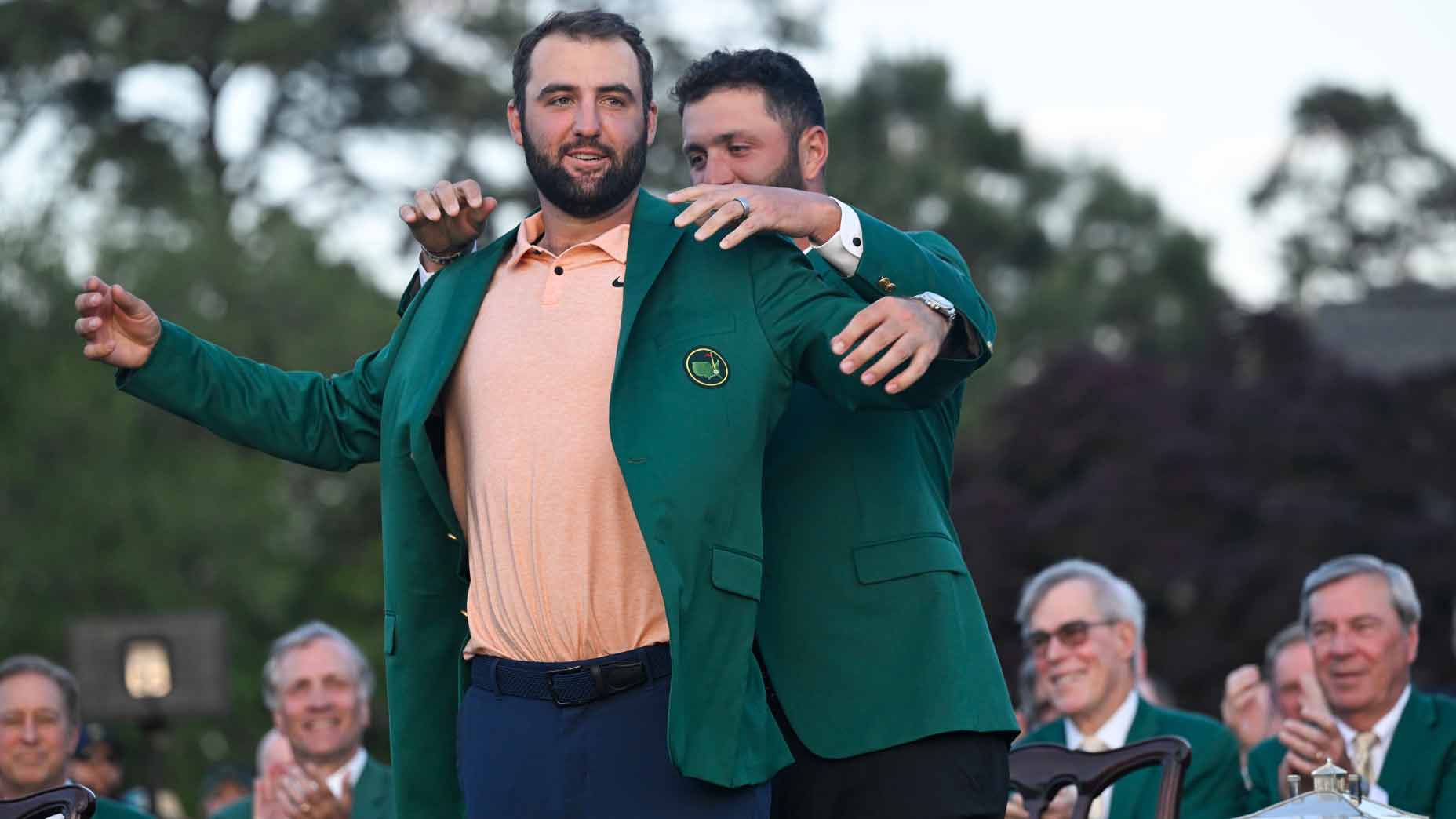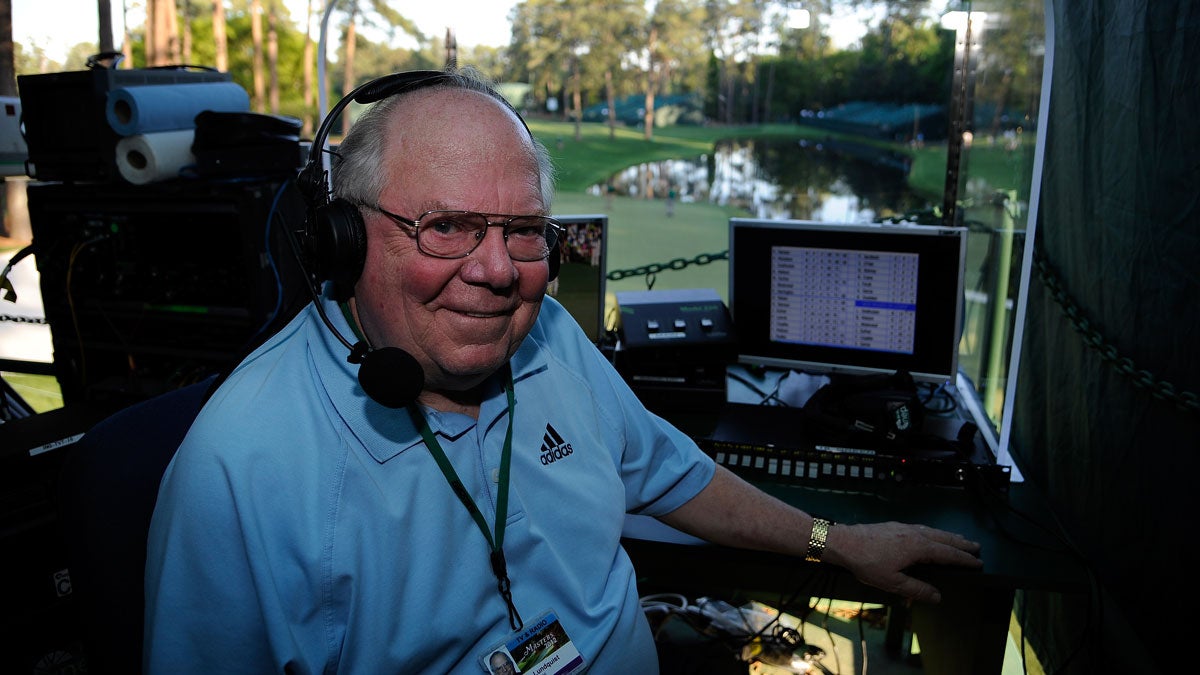Scottie Scheffler won over $17 million in prize money last season and was one of the PGA Tour’s worst putters. His driving and iron play were that good. He played in 23 events and made the cut in all of them, earning top-10 finishes in 17 to go along with two wins and two runner-up finishes. He did all that while finishing No. 162 in Strokes Gained: Putting.
Scheffler tinkered with different putters in the second half of 2023, benching his Scotty Cameron blade-style putter for a prototype TaylorMade Spider with a milled face at the end of the PGA Tour season. That didn’t work, so Scheffler played a few events with a blade made by the Olson Putter Company at the end of 2023 and in early 2024, but that didn’t work out either.
Then, in the days leading up to the Arnold Palmer Invitational in March, Scheffler switched back into a TaylorMade Spider and won, leading the field that week in Strokes Gained: Putting. The following week, he won again at the 2024 Players Championship, finishing first in Strokes Gained: Off the Tee (naturally) and 37th in Strokes Gained: Putting.
Rory McIlroy’s prophecy appeared to be coming true because, speaking with Amanda Renner at the Genesis Invitational in February as Scheffler struggled on the greens, McIlroy had said, “I’d love to see Scottie try a mallet, but selfishly for me, Scottie does everything else so well that he’s given the rest of us a chance.”
A few days before the Masters, Golfweek talked with Andrew Oldknow, TaylorMade’s director of product creation for putters, to learn what makes Scottie Scheffler’s new Spider Tour putter unique, how it is similar to Spider Tour X putters sold at retail and more.
Golfweek: Let’s go through a progression. Towards the end of last season, Scottie Scheffler started using a TaylorMade Spider putter with a milled face. Was the goal to create a mallet that would feel like the milled blade putters that he had before but that would provide the forgiveness or stability?
Andrew Oldknow: The goal, honestly, was to give him better alignment. While centering the ball with the alignment system, we were actually trying to get that thing to perform just like a blade.
We put a massive amount of tungsten in the front of that putter. We used all aluminum in the back. We gave it a profile of the Spider X shape, but under the backside, it really was all cut out. We were hollowing the whole thing out to get as much weight forward as possible so that the putter actually closed like a blade.
At the time, he loved the performance of his blade, he just felt like he didn’t have enough alignment out of it. True Path worked really well for him in terms of centering the ball. One of his biggest issues is he doesn’t always hit the ball center face.
Scheffler’s Spider Tour X putter is large enough to contain the True Path alignment system. (David Dusek/Golfweek)
GK: Got it. A blade simply doesn’t have the size to be able to accommodate a True Path-style alignment system.
AO: Correct.
GW: After playing a few events with an Olson blade, Scottie and his team asked TaylorMade for many different Spider putters with different hosel configurations, neck styles, and even different inserts. Obviously, he was very open then to the alignment system you talked about, and he wound up settling on a Spider Tour X with an L-neck hosel. That configuration is not available at retail. How much does that hosel configuration play into the way his putter swings for him?
AO: Yeah, great question. So, over the last few years, even Rory McIlroy has gone into a slant-neck version of the Spider Tour. They’re very similar, but the toe hang is going to be slightly different.

Scheffler’s Spider Tour X has an L-neck hosel designed to create some toe hang. (David Dusek/Golfweek)
We know that toe hang is slightly more toe down with the L-neck, so that helps [Scottie] rotate and feel more blade-like performance. Again, we’re trying to get him the good feel that he wants. He’s been in the blade for the majority of his life, and winning majors and so forth in a blade product.
So, we want to make sure that when he’s releasing the putter, that it has the right feel. A slightly more toe-down putter is going to have more of a familiar feel, and so that’s been the most important thing for him.
And yes, he asked for everything under the sun and our team has done everything we can to provide him with that.
GW: I noticed on the retail putters there is an X7 in the sole in the toe area, but on Scottie’s but an X1.
AO: Yep.
GW: Does that mean anything?
AO: Yeah, hosel, that’s the type of hassle on there. We have code names for our hosels.
GW: So, the motivation for Scottie to change was really rooted in wanting to be able to align the putter more easily, and then you designed a Spider that would swing like his blade. But now, instead of hitting off a milled metal face, he’s using a grooved Pure Roll face. Is it the same one that is in retail putters?
AO: He was in the camp of wanting more metal face inserts versus the Pure Roll Surlyn insert. We provided him with milled prototypes and metal versions with different thicknesses to get different feels. And then, low and behold, Joe Ryon, who runs our putter lab, was like, “Let’s just throw one in with the actual, stock, Surlyn insert even though they’re not asking for it.” We wanted to give it to him.

A blend of Surlyn and aluminum powder create the feel Scheffler likes while the Pure Roll grooves encourage the ball to start rolling quicker. (David Dusek/Golfweek)
The Pure Roll insert has a little bit of aluminum powder in it, so it’s 80 percent Surlyn. We’ve player-tested pure Surlyn inserts (essentially ionomer resin) in the past, but they test too soft.
GK: So that’s the same insert that is found in the retail Spider Tour putters
AO: Yes. The addition of the Aluminum flake slightly firms the compound to create a perfect balance of feel, sound and roll performance. And, as you can see, the score lines and grooves are angled down slightly. They will grab the ball better and get it rolling. In everything we’ve ever tested on our Quintic Ball Roll system here in The Kingdom, you will see that if you put somebody in this 80/20 Pure Roll insert, they will instantly get better numbers.
GK: What is the loft on Scottie’s putter?
AO: Our traditional Spider Tour putters have 3.5 degrees of loft, but Scottie’s has 3.1 degrees. You need some loft in there because the ball sits in a depression created by its weight. You have to get it out of the depression or else you end up just jamming it into the ground, but the grooves grab the back of the ball and stop it from back spinning.









